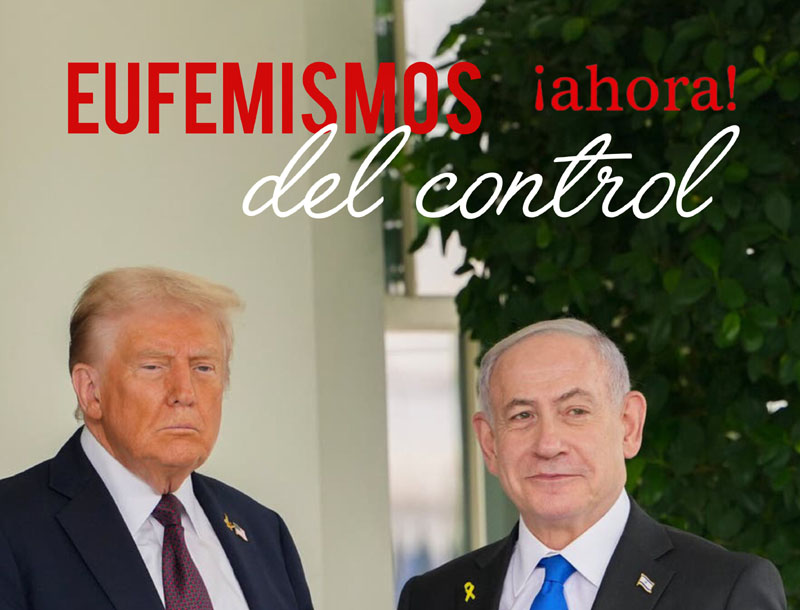Euphemisms for Control
- Written by Reynaldo Zaldívar
- Published in Opinion
- Hits: 1349

The White House announced a new peace plan for Gaza that promises "peaceful and prosperous coexistence." However, as The New York Times reports, the contradictions are evident: Netanyahu denies a Palestinian state, while Hamas is "studying" the proposal. Peace, in this scenario, seems like an elastic term that stretches according to the interests of the moment.
International humanitarian law requires protecting civilians and acting proportionally, principles that are conspicuously absent in this conflict.
This is not the first case where the United States mediates to gain advantages. In 1898, with the Treaty of Paris, Washington and Madrid decided the fate of Cuba, the Philippines, Guam, and Puerto Rico without consulting their inhabitants. A defeated Spain ceded its territories under pressure, while the United States emerged as a colonial power.
The Philippines, for example, was officially handed over for twenty million dollars, and Puerto Rico and Guam became US territories. The parallel is disturbing: then, as now, the voices of those affected were ignored.
The current plan, with its technical committee overseen by Trump and figures like Tony Blair, repeats the script: reconstruction and humanitarian aid are promised, but the Palestinian Authority is excluded from the immediate governance of Gaza. "Deradicalization" sounds like a euphemism for external control. Meanwhile, Netanyahu gets what he seeks: full support from Washington and continued military operations in Gaza.
The agreement reveals profound power asymmetries. The ultimatum for Hamas contrasts with the calculated ambiguity about the Palestinian political future. While Israel would maintain its military presence on the Gaza perimeter, the Palestinians would see their territory administered by international technical committees where their direct representation would be minimal.
This is reminiscent of the mechanisms of colonial government where fundamental decisions are made far from the people who live in the territory. The international community is watching with growing skepticism.
The contrast could not be more dramatic: while various countries formally recognize the Palestinian state, the US-Israeli plan postpones this possibility. The disconnect between global diplomatic realities and the bilateral negotiations between Washington and Jerusalem threatens to deepen the fracture in the international system.
The humanitarian situation in Gaza demands immediate solutions, not conditional promises. Real access to food, medicine, and basic services cannot depend on complex technical arrangements or particular political agendas. Humanitarian aid must follow the principles of neutrality and impartiality, not be used as a bargaining chip in asymmetric negotiations.
History will judge whether this mediation is a step toward peace or just another geopolitical move. For now, as in 1898, those most affected remain voiceless at the table where their future is being divided.
